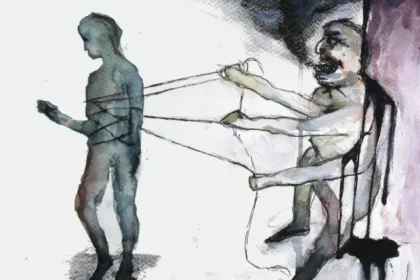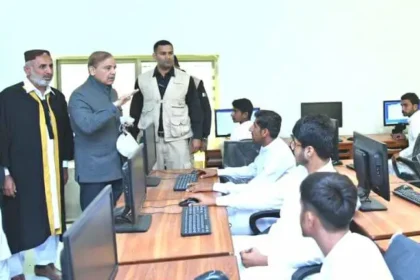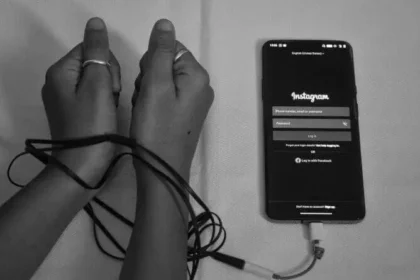On International Women’s Day, March 8, I spoke at an online seminar on women’s empowerment in Pakistan. While discussing patriarchy, I raised concerns that caused a defensive reaction from men. I suggested that women should be the ones to speak about their experiences and that religion shouldn’t be used as a pretext for everything. Unfortunately, this mirrored the typical Pakistani debate where men dominate discussions on women’s issues.
Women are often sidelined in discussions about the challenges they face, while men take centre stage. However, it is women who experience the suffering firsthand. Our society has inherited numerous issues disguised as family values, religious beliefs, and cultural traditions. These problems have persisted for far too long.
Societal issues often hide behind the veil of family values, religious beliefs, and cultural traditions.
In Pakistan, empowered women are seen as a threat to religion and society. They face dismissive attitudes disguised as religious or social values. This regressive mindset is deeply ingrained in our culture, even among the educated and elite. Instead of embracing empowered women who refuse to be controlled, society prefers subservient women who won’t object.
The Aurat March is a prime example. Since its inception, it has faced baseless accusations and attacks. In reality, the march challenges the patriarchal system that denies women’s rights, treats girls as inferior, and denies them justice. It advocates for equality, rooted in the Islamic concept of Musawaat.
It’s bewildering how people quickly blame the women’s rights movement for promoting profanity and an anti-Islamic culture. Yet, these same people perpetrate heinous acts of violence. When women speak up about their suffering, they are met with intolerance.
Women’s voices cannot be silenced, as educated women today understand their rights and demand change.
How can you claim to uphold the teachings of Islam while denouncing art, music, and working women, and ignoring sexual exploitation and growing rape cases? This hypocrisy poses the biggest threat to Islam and creates an intolerable society.
It’s undeniable that men bear the most responsibility for crimes against women in Pakistani society. From abuse and assault to harassment and property deprivation, men are responsible for these disturbing acts. Blaming women for their plight is unjustifiable.
The Aurat March began in 2018, but women have suffered under oppression for too long. Labeling their movement as anti-Islam is hypocritical, especially when so much patriarchal evil remains unchecked. We need to clean up our own backyard before criticising the women’s uprising. Punishing culpable men, speaking out against assaults, and addressing honour killings and property deprivation would render the Aurat March unnecessary.
We must acknowledge the reality of patriarchal oppression and dismantle the anti-woman mindset. Today’s educated women understand their rights and won’t be silenced until change is achieved.
In Pakistan, issues are often distorted and linked to religion, honour, and patriotism without factual basis. It’s crucial to listen to women’s voices and educate ourselves about movements like the Aurat March. Misconceptions about Western agendas and vulgarity need to be debunked.
To achieve lasting change, we must educate our children, particularly our sons, to treat women with respect and promote gender equality.
The patriarchal mindset feels threatened by feminism, yet fails to educate itself on the subject. If you disagree with the women’s uprising or feminism, back up your arguments with valid points and concrete evidence. Educate yourself about equality and tolerance in Islam, and explore different humanitarian movements.
To create lasting change, we must educate our children, especially our sons, about respect and equality. Financial empowerment and equal educational opportunities for daughters are essential. We need to dismantle the patriarchal system that perpetuates women’s struggles.
Establishing a tolerant and peaceful society begins at home. We must accord equal respect and esteem to the voices of women. True honour lies in empowering women, not forcing them to bow down to male authority. Education, financial stability, and gender equality are keys to progress.
To sum up, challenging conservative and patriarchal norms, rigid family values, and religious hypocrisies is a tough and unpopular endeavour. Disagreement, however, is a fundamental aspect of a democratic society. It is our duty to create a tolerant and peaceful society for the benefit of both present and future generations. To fulfil this responsibility, we must begin by introspecting and initiating changes within our own households. Our actions will shape the legacy we leave behind, and it is our responsibility to set examples that future generations can admire and emulate.
You can read and listen the original of this summarised article on Aware Pakistan.




